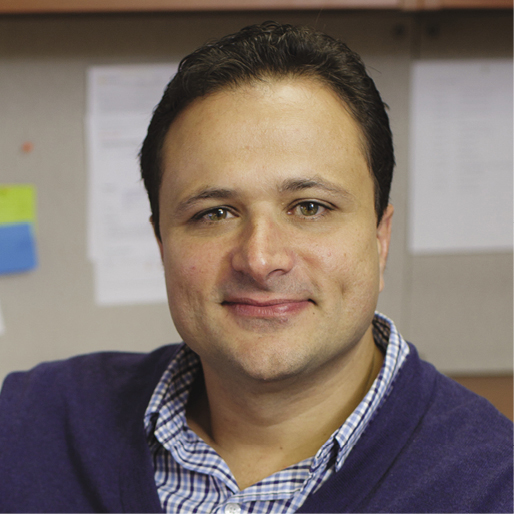José Lemos, Ph.D.
Professor of Oral Biology
College of Dentistry
2023 Awardee
José Lemos thought he wanted to be a marine biologist, but an elective course in college that focused on human infectious diseases sparked a change.
In it, he learned about the biology of worms that cause human diseases and enjoyed it so much it launched his career researching microbial pathogenesis and molecular microbiology.
Lemos’ research program focuses on the identification and characterization of virulence and stress response mechanisms of bacterial pathogens, including Streptococcus mutans, a major caries-associated pathogen, and the hospital-associated pathogen Enterococcus faecalis.
Lemos earned his doctorate in microbiology and immunology from the Federal University of Rio de Janeiro and conducted his postdoctoral research at both the University of Rochester and UF. His first stint at the UF College of Dentistry began in 2002, as a Research Assistant Professor in the Department of Oral Biology. In 2007 he began his independent research career at the University of Rochester in the Center of Oral Biology, returning to Gainesville in 2015 as part of UF’s Metabolomics Preeminence Initiative.
Lemos is vice chair, next to be chair, of the highly-regarded 2024 Gordon Research Conference in Streptococcal Biology, was a standing member (2017-2023) of the National Institute of Allergy and Infectious Diseases (NIAID) Bacterial Virulence (formerly Bacterial Pathogenesis) study section, and is past president of the microbiology and immunology division of dentistry’s largest international and national organizations.
Lemos’ research has been consistently supported by multiple NIH grants, along other funding sources. Currently, he is co-PI of a National Institute of Dental and Craniofacial Research (NIDCR) R01 and PI of two new R01s from NIAID and NIDCR. He is also the program director of UFCD’s prestigious NIDCR T90/R90 training grant in oral biology.
His research achievements aside, Lemos enjoys the collaborative spirit and energy that comes with being a university professor who can mentor students and contribute to the future of oral biology discovery.
“One of the perks, perhaps the most enjoyable, of being part of the dental school is the daily interactions with so many bright and inquisitive students. As faculty in the primary basic science department, mentoring graduate students and postdoctoral fellows is a primary focus of my teaching mission. I believe that one of my major professional accomplishments is that every former graduate and postdoc student that has trained in my lab has remained in science-related areas,” he said.


